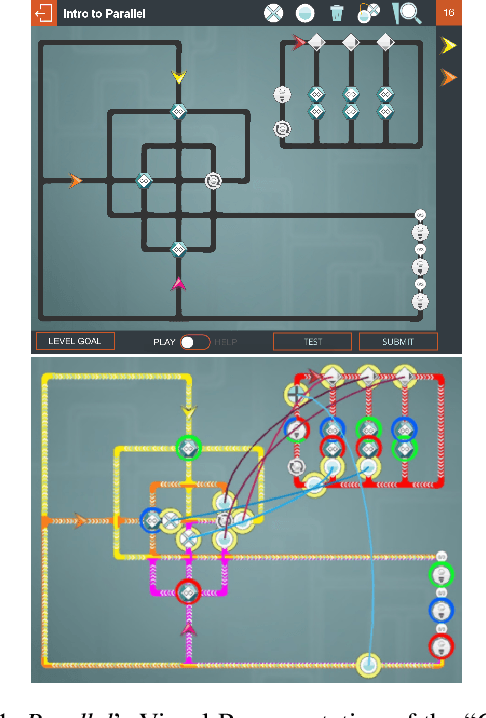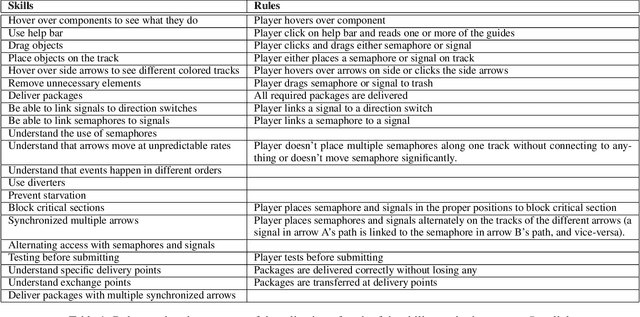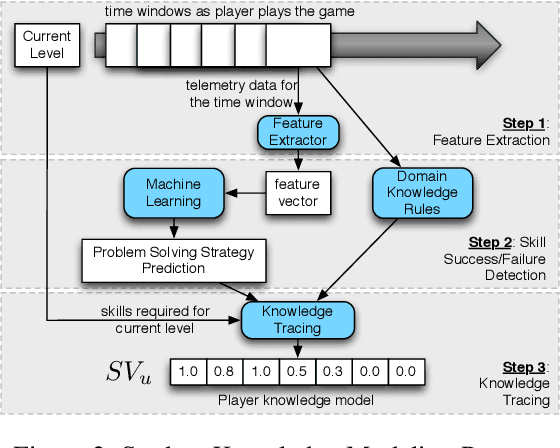Bruce Char
Tracing Player Knowledge in a Parallel Programming Educational Game
Aug 15, 2019



Abstract:This paper focuses on "tracing player knowledge" in educational games. Specifically, given a set of concepts or skills required to master a game, the goal is to estimate the likelihood with which the current player has mastery of each of those concepts or skills. The main contribution of the paper is an approach that integrates machine learning and domain knowledge rules to find when the player applied a certain skill and either succeeded or failed. This is then given as input to a standard knowledge tracing module (such as those from Intelligent Tutoring Systems) to perform knowledge tracing. We evaluate our approach in the context of an educational game called "Parallel" to teach parallel and concurrent programming with data collected from real users, showing our approach can predict students skills with a low mean-squared error.
 Add to Chrome
Add to Chrome Add to Firefox
Add to Firefox Add to Edge
Add to Edge